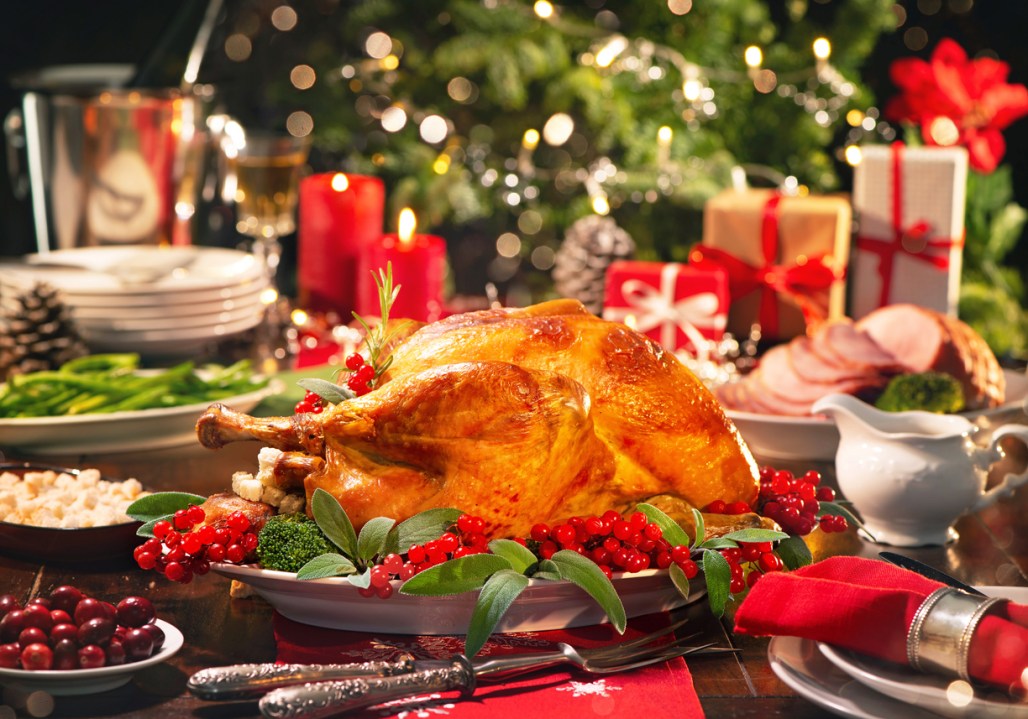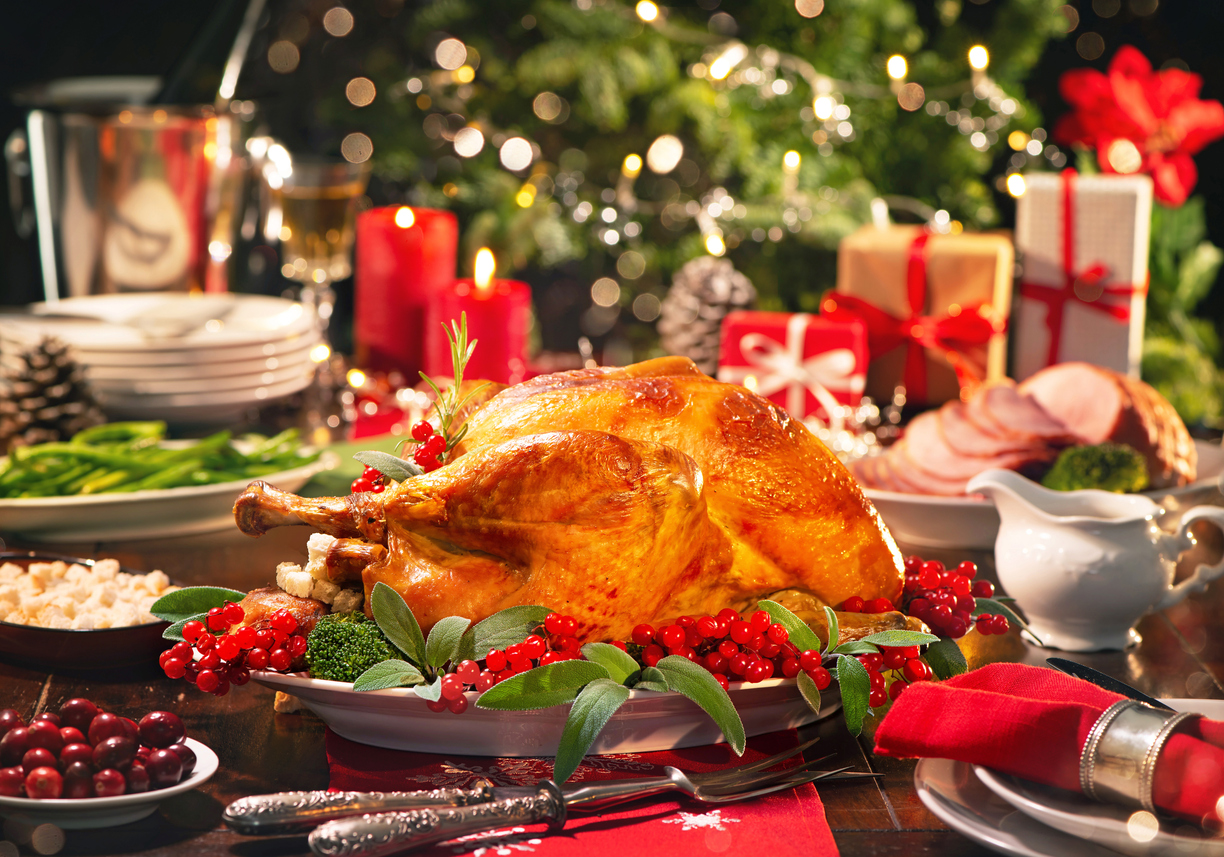Many of the elements of the Christmas spread have more detractors than admirers. Turkey can seem an undistinguished bird thrust into an undeserved limelight: bland and unwieldy, it’s a far cry from a rich goose or even a regular, moist chicken. Carrots and parsnips – uninspiring. Bread sauce resembles the gruel ladled out to Oliver Twist. Christmas pudding – dense and gluey. And Brussels sprouts, well, enough said.
Every year, Christmas dinner-haters crawl out of the woodwork to air their disgust at the traditional meal and find themselves given a surprisingly sympathetic hearing. A 2020 YouGov poll indicated that only around half of us, for example, consider turkey part of our ideal Christmas dinner (it hardly needs saying that for Gen Z the figure is even lower). The draw of going rogue is undeniable: once you free yourself of the constraints of tradition, you enter a world of limitless possibility. You could go for fried chicken from the local KFC as they do in Japan for Christmas (seriously). Or have curry, pizza, maybe even Pot Noodle.
When it comes to the traditional meal, there’s huge pressure to get it right. Many of us don’t entertain in large numbers at other times of the year, and so the temptation at Christmas to convince relatives that, unbeknown to them, we are a secret domestic goddess in the kitchen can become overwhelming. OK, so career progression may not be as rapid as the mother-in-law was expecting, but what will it matter when she sees that I can make roast potatoes this crispy? There is a constant flirtation with giving the whole thing a new twist to wow the guests. People thus go to extraordinary lengths to depart from turkey and trimmings without, you know, departing from turkey and trimmings. Enter Ottolenghi and his spiced Creole turkey with bourbon and pineapple, served with a side of roasted cassava. No one wants to eat this stuff on Christmas Day.
There is a constant flirtation with giving the whole thing a new twist to wow guests. People go to extraordinary lengths to depart from turkey and trimmings without, you know, departing from turkey and trimmings
Small families pose the opposite problem. Suddenly, there’s no one to impress. The cost-benefit ratio tips and it feels hardly worthwhile going through the effort (or, amid a cost of living crisis, the expense). Mumsnet is full of agonised posts asking whether it’s worth cooking the traditional meal for 2.5 people (does one sulky child lope off to his bedroom after the starters?).
Even for accomplished cooks, the many components are challenging. It is quite normal to find shoppers, barely halfway through December, exchanging urgent whispers in the Waitrose aisles about whether it’s possible to cook pigs in blankets in the air fryer so as to save on much-needed oven space.
Why then, year after year, do most of us still cook it all? Perhaps we do it because, despite the frustrations, we have within us a desire to reach for an ideal of domesticity. And perhaps we feel above all a satisfaction in keeping a tradition alive. It might not be easy or even our favourite way of doing things, but on some level we accept it just is the way of doing things. That’s not always a good reason to do something unthinkingly: I don’t make my mother the traditional simnel cake every Mothering Sunday because I know she would much rather have a Black Forest gateau. But sometimes, and Christmas is perhaps one of those times, traditions take on a heightened importance for us all and the traditional ways seem worth sticking with. Could it be that our attachment to the customary Christmas dinner says something about the conservative in all of us?
As you collapse on to the sofa on Christmas afternoon, hot, bothered and exhausted from toiling away in the kitchen for the best part of two days, it may pay to recall Roger Scruton who wrote of the importance of holding on to sacred rituals. The repetitive doing of certain things time and again for no reason other than This Is How Things Are Done. For it is in staying true to those simple traditions that we find the way to the eternal. That might sound rather lofty for roasties and gravy, but what could be more sacred – both in a religious and irreligious sense – than bringing the family together around the table to enjoy a time-honoured feast? Say what you like about the culinary credentials of turkey with all the trimmings. But sometimes there’s more to food than in the mere eating.







Comments